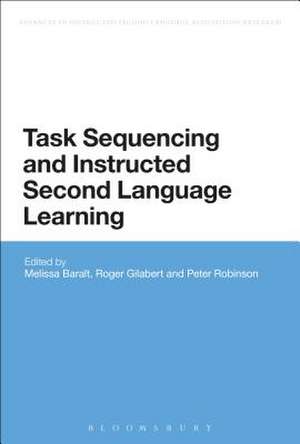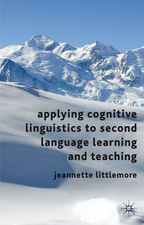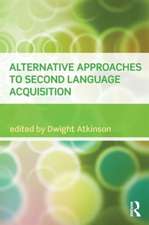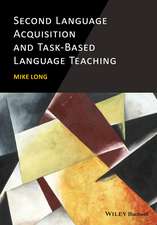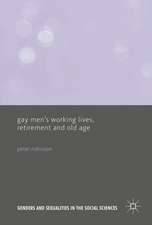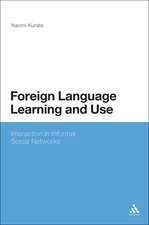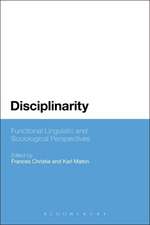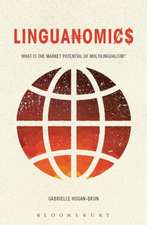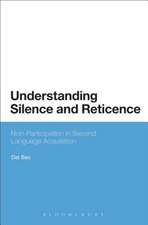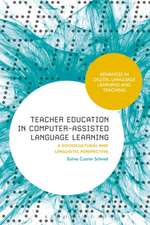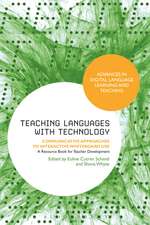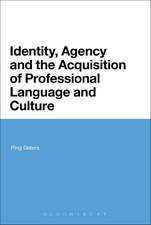Task Sequencing and Instructed Second Language Learning: Advances in Instructed Second Language Acquisition Research
Editat de Melissa Baralt, Roger Gilabert, Peter Robinsonen Limba Engleză Paperback – 27 ian 2016
| Toate formatele și edițiile | Preț | Express |
|---|---|---|
| Paperback (1) | 257.32 lei 6-8 săpt. | |
| Bloomsbury Publishing – 27 ian 2016 | 257.32 lei 6-8 săpt. | |
| Hardback (1) | 949.56 lei 6-8 săpt. | |
| Bloomsbury Publishing – 30 iul 2014 | 949.56 lei 6-8 săpt. |
Preț: 257.32 lei
Preț vechi: 295.30 lei
-13% Nou
Puncte Express: 386
Preț estimativ în valută:
49.24€ • 51.41$ • 40.66£
49.24€ • 51.41$ • 40.66£
Carte tipărită la comandă
Livrare economică 15-29 aprilie
Preluare comenzi: 021 569.72.76
Specificații
ISBN-13: 9781474274074
ISBN-10: 1474274072
Pagini: 248
Dimensiuni: 156 x 234 x 25 mm
Greutate: 0.35 kg
Ediția:NIPPOD
Editura: Bloomsbury Publishing
Colecția Bloomsbury Academic
Seria Advances in Instructed Second Language Acquisition Research
Locul publicării:London, United Kingdom
ISBN-10: 1474274072
Pagini: 248
Dimensiuni: 156 x 234 x 25 mm
Greutate: 0.35 kg
Ediția:NIPPOD
Editura: Bloomsbury Publishing
Colecția Bloomsbury Academic
Seria Advances in Instructed Second Language Acquisition Research
Locul publicării:London, United Kingdom
Caracteristici
Situates
task
sequences
in
natural,
ecological
contexts
for
foreign
language
learning.
Notă biografică
Melissa
Baraltis
Assistant
Professor
of
Spanish
Applied
Linguistics
at
Florida
International
University,
USA.Roger
Gilabertis
Lecturer
in
Applied
Linguistics
at
Universitat
de
Barcelona,
Spain.Peter
Robinsonis
Professor
of
Linguistics
and
Second
Language
Acquisition
at
Aoyama
Gakuin
University,
Japan.
Cuprins
List
of
contributorsAcknowledgementsChapter
1.
An
introduction
to
theory
and
research
in
task
sequencing
and
instructed
second
language
learning,Melissa
Baralt,
Roger
Gilabert
&
Peter
RobinsonSection
I.
Experimental
studies
of
task
sequencingChapter
2.
Task
sequencing
in
the
L2
development
of
spatial
expressions,Mayya
Levkina
&
Roger
GilabertChapter
3.
The
role
of
task
sequencing
in
monologic
oral
production,Aleksandra
MalickaChapter
4.
Task
complexity
and
task
sequencing
in
traditional
versus
online
language
classes,Melissa
BaraltChapter
5.
The
effects
of
guided
planning,
task
complexity
and
task
sequencing
on
L2
oral
production,Colin
ThompsonSection
II.
Educationally
situated
studies
of
task
sequencing
in
natural
classroom
contextsChapter
6.
A
pedagogical
proposal
for
task
sequencing:
An
exploration
of
task
repetition
and
task
complexity
on
learning
opportunities,YouJin
Kim
&
Caroline
PayantChapter
7.
Teachers`
application
of
the
Cognition
Hypothesis
when
lesson
planning:
A
case
study,Melissa
Baralt,
Simone
Harmath-de
Lemmos
&
Sawsan
WerfelliChapter
8.
Learning
to
perform
narrative
tasks:
A
semester-long
classroom
study
of
task
sequencing
effects,Craig
Lambert
&
Peter
RobinsonSubject
index
Recenzii
[Task
Sequencing
and
Instructed
Second
Language
Learning]
provides
a
welcome
contribution
to
the
current
discussion.
...
[T]he
volume
gives
much
food
for
thought
...
[and]
makes
an
interesting
starting
point
for
anyone
looking
for
a
challenging
research
topic.
Task Sequencing and Instructed Second Language Learningis an important contribution to our understanding of the effects of task design in second language pedagogy. Analysing a wide range of instructional contexts, the editors have brought together a collection of carefully designed studies conducted in experimentally controlled and classroom environments. An innovative piece of work for both researchers and language teachers and anyone who is interested in using language learning tasks in order to promote L2 learning.
Task Sequencing and Instructed Second Language Learningis an important contribution to our understanding of the effects of task design in second language pedagogy. Analysing a wide range of instructional contexts, the editors have brought together a collection of carefully designed studies conducted in experimentally controlled and classroom environments. An innovative piece of work for both researchers and language teachers and anyone who is interested in using language learning tasks in order to promote L2 learning.
